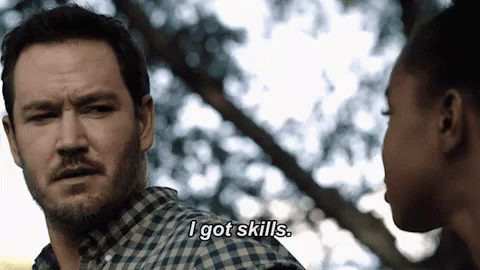Often when we think about researchers, we picture laboratories, people with white lab coats and weird chemicals around them. But there is so much more to a life of researcher that isn’t stereotyped and known to the general society. Often, many of these are skills that aren’t even considered till people actually enter the world of the research, unlike literature searches, reviews and paper publishing. Nevertheless, these underrated skills are necessary for success in the research world. Read on to know what exactly they are, and how you could inculcate them yourself.
Effective Project Management
Project management is the step-by-step planning of your project. This includes the details of when and how certain steps of the project should be made. Identification of required manpower, finances and resources at each step is also important. Make sure that goals you set are realistic and practical too, taking into considerations all aspects.
Start making it a practice right from your graduate life to plan up your projects yourself, with the help and advice of your guide. This will help you understand the work flow of the project yourself, and give the motivation to work towards milestones you set yourself.
Planning, Managing & Handling Budgets
Effectively handling budgets is very important in research. Often research grants are given to the laboratory, and everything – right from the resources like chemicals and glassware, manpower, all are dependent on the funding. It is important to keep track of how much money is spent on what, as well as documenting the concerned bills for the same. In fact, even proposing a budget has its own format – in most cases this not only includes the requirements you nee with the estimated budget to be allocated to it, but a justification of that too.

At a graduate student level, you might not get an opportunity to handle budgets much, but there are workshops and training sessions that you could do to get the first-hand experience on project budget planning. Though they are relatively less opportunities, another way to try applying for sponsored projects offered at graduate level. And another option to give a try is approaching your guide and telling them you’d like to help them out with handling budgets. Who knows, they might actually appreciate it and let you.

Leading & Managing a Team
Research projects often require working with a group of people, both academic and non-academic, technical and administrative staff, along with collaborations with people from other laboratories as well. Right from when you’re a graduate, learn to be a team player, and well as a team leader. Learn to listen to others, take feedback, constructively criticize and solve problems with a solution considering everyone’s inputs. Working in labs as an intern, and doing group projects all develop your team management skills.
Right Skill = Bright Future
Effective Data Management
The most crucial step of any research is interpreting the results the right way. The source of data could be anything – experiments done in the laboratory (wet lab), in silico simulations (dry lab), statistical evidence, material from interviews or research done on archive records. Only when you have a good knowledge of how to handle the data can you successfully analyze and interpret your results. Data handling starts with effective data management. Store your data in both hard copy and digital forms. When working in a group, remember to keep track who has what data. Organize your data, because what might seem clear at the moment, might turn out to be confusing when you later look at it.

These tips are for whenever you do a project, whether a major or minor one, and more importantly when they are projects done over a long period of time. When it comes to data interpretation, learn what kind of statistical tools are used, and if there are any software that could be used to perform those statistical analysis. Rather than depending on others to process your data, try learning to do it yourself. There are several online platforms like Coursera and Swayam, that offer courses on statistics for researchers particularly.
Learn relevant IT skills
With the world heading towards digitalization, the focus is shifting more towards computer-based simulations, and easier ways to handling the vast amounts of data being generated. Update yourself about any relevant software used in your domain, and work towards building your skills in it. Never hurts to know an extra skill!

When you’re just entering the research field, there is only so much theory and laboratory knowledge that helps you do your research. But to successfully do your research, you need more than just your domain expertise.






